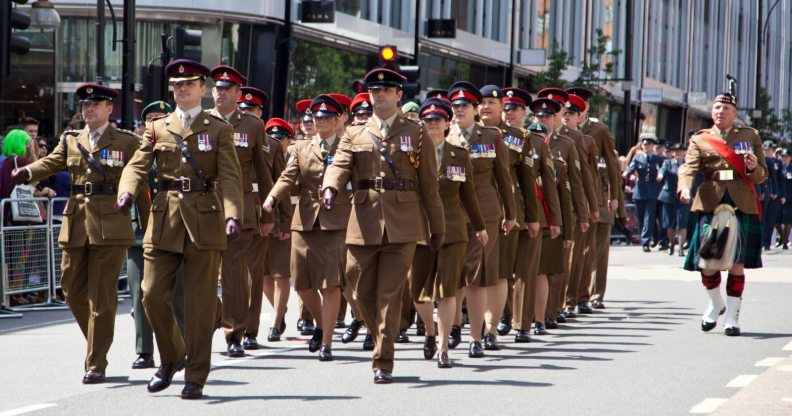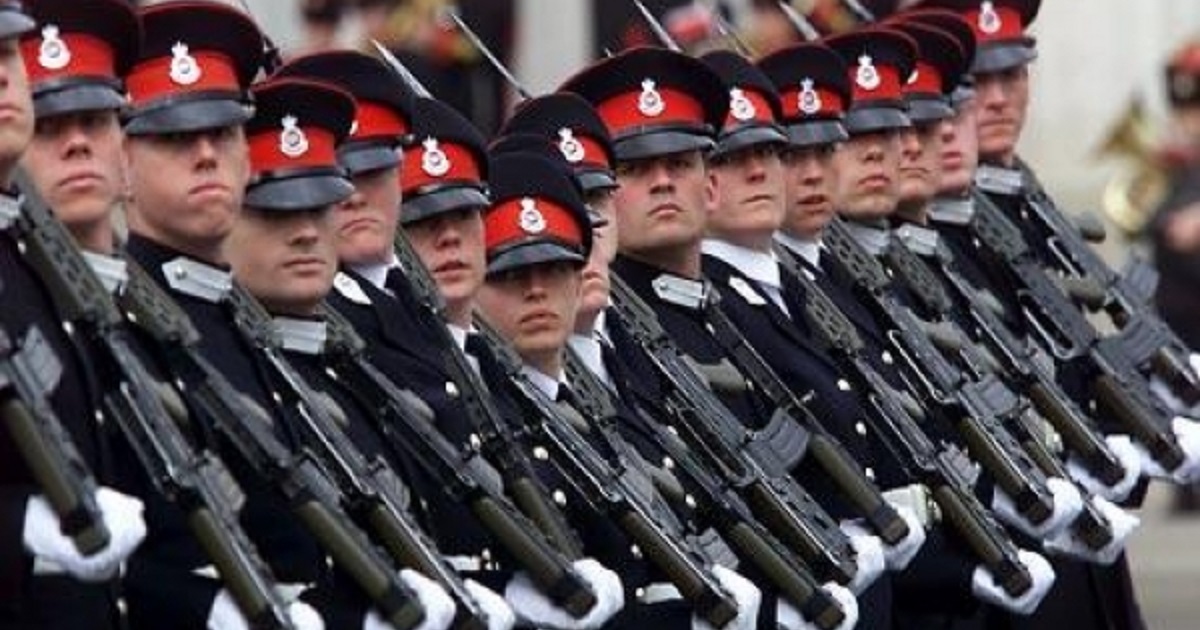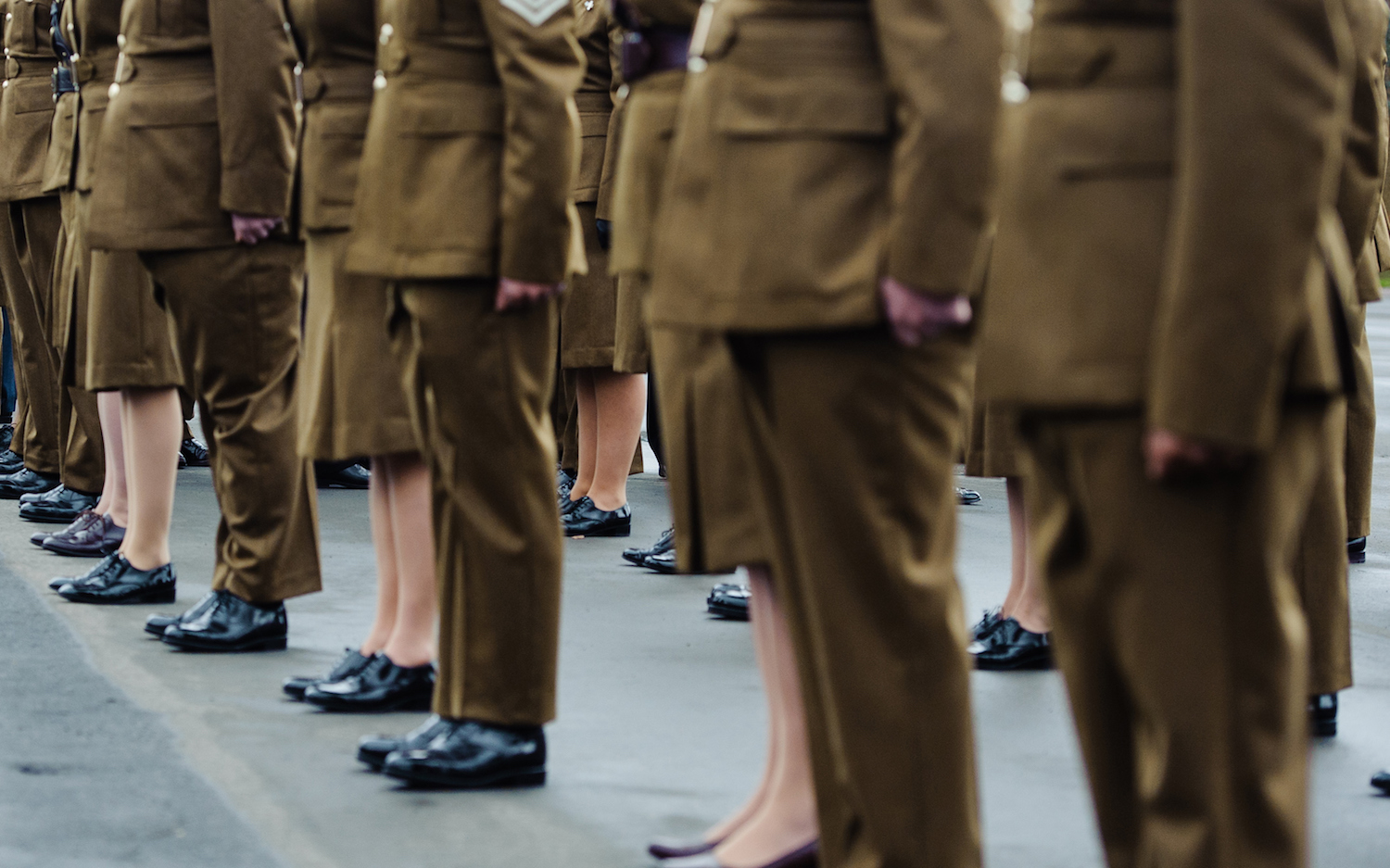British military set to introduce gender and age neutral fitness tests

The British Army will introduce gender and age-neutral fitness tests for soldiers, the Ministry of Defence has announced.
The new tests, which will come in next year, will replace assessments based on sex and age to ensure recruits are physically able to serve.
Field Army Sergeant Major Gavin Paton said: “I don’t care if you are a man or a woman, I don’t care what you do, and the enemy doesn’t either.”
Currently, physical assessment tests include push-ups and sit-ups, but the new tests aim to mimic “real life” situations and will see soldiers carry heavy weights over different distances.

LGBT+ people were banned from serving in the British Army until 2000 (Getty Images)
Recruits will also have to complete a “fire and move” exercise in less than five minutes, according to ITV News.
Speaking at the Army base in Aldershot, Lance Corporal Nicola Cotton of the Scots Guards said: “People underestimate females in the British Army.
“I think it is about time we upped the ante and make it equal and not make allowances for gender or age.”
The £1.6 million “This is Belonging” campaign answered whether hopeful troops can be “gay”, “emotional” and “practice their faith” in the army.
General Nick Carter, Chief of General Staff, defended the series of adverts because he insisted that the army needed to appeal to people other than young, white men.
The series of equality-boosting ads came as an answer to the failed campaign which called for the “be the best” slogan the Army had adopted for years to be scrapped.

The British Army released an ad campaign this year which lauded different sexualities, ethnicities and faiths (Getty Images)
Defence Secretary Gavin Williamson decided to halt plans to get rid of the slogan after research found that people perceived it to be “dated, elitist and non-inclusive”.
The video, which was shared on Facebook by Army Jobs, has been criticised for having “too much focus on diversity and equal rights and not enough on just focusing on enlisting quality over quota”.
One person wrote: “Your sexuality or race does not matter, however, the fact our army is now recruiting based on political correctness rather than ability concerns me…”
Some argue that by appealing to a more diverse pool of people it will help to boost numbers, amid falling numbers of recruits.

